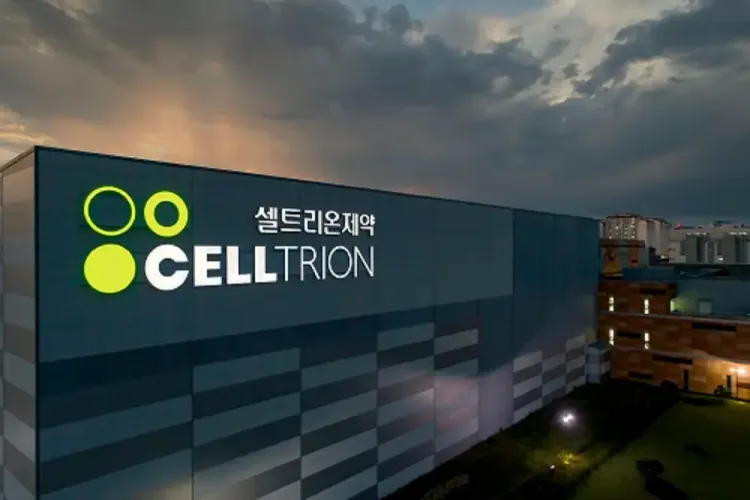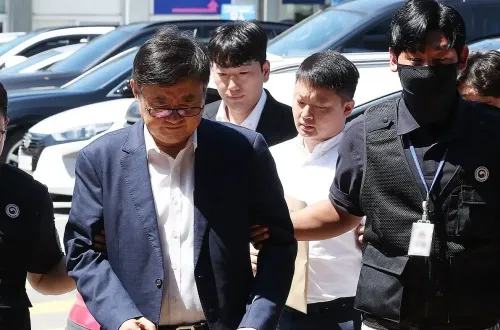How is Celltrion Countering Tariff Threats with a New Acquisition?

Synopsis
Key Takeaways
- Celltrion's acquisition is aimed at mitigating tariff risks.
- The deal includes a total investment of 1.4 trillion won.
- The Branchburg facility is FDA-approved and compliant with cGMP.
- Celltrion plans to expand its biosimilar portfolio significantly.
- Local production enhances supply chain resilience.
Seoul, Sep 23 (NationPress) Celltrion, a prominent biopharmaceutical firm from South Korea, announced on Tuesday that its U.S. subsidiary has finalized an agreement to acquire a biopharmaceutical manufacturing facility in the United States. This strategic move is expected to mitigate risks associated with potential U.S. tariff increases.
Celltrion USA will purchase the facility from Eli Lilly for 460 billion won (approximately $330 million) and aims to finalize the transaction by year-end, as detailed in a press release reported by Yonhap news agency.
Celltrion Chairman Seo Jung-jin stated during an online press briefing, “This acquisition provides a foundational strategy to protect against tariff risks, complementing our prior initiatives, such as shipping two years’ worth of inventory to the U.S. and enhancing local contract manufacturing organization (CMO) agreements.”
By establishing a domestic production center, Celltrion has developed a comprehensive supply chain in the U.S., covering all stages of drug manufacturing, from production to commercialization.
The company plans to invest 700 billion won in the facility, which includes the acquisition cost, with an additional 700 billion won earmarked for future expansions.
In July, Celltrion was designated as the preferred bidder for the 37-acre facility located in Branchburg, New Jersey, which also includes an extra 10 acres of undeveloped land intended for future development to address increasing market demands.
This Branchburg facility is a large-scale site approved by the U.S. Food and Drug Administration (FDA) for drug substance manufacturing, compliant with current good manufacturing practice (cGMP) regulations. It has a proven history of producing treatments for cancer and autoimmune disorders, according to Celltrion.
Seo added, “We will continue to manufacture pharmaceuticals for Lilly under a CMO agreement at this facility while also producing Celltrion's products.”
In May, U.S. President Donald Trump enacted an executive order aimed at reducing domestic drug prices by comparing them to those in other nations. This order addresses a system where the U.S. pays substantially more for prescription drugs compared to other advanced economies.
Trump has also indicated that tariffs on pharmaceuticals imported into the U.S. could potentially escalate to 250 percent, the most significant level he has threatened thus far.
Celltrion is actively broadening its global biosimilar portfolio, increasing the number of approved products from six to eleven. The company aims to launch 22 biosimilars by 2030 and 41 by 2033, along with plans to initiate clinical trials for 13 original drugs by 2035.
Currently, the company’s sole original drug, Zymfentra, is marketed in the U.S. for treating autoimmune diseases.









